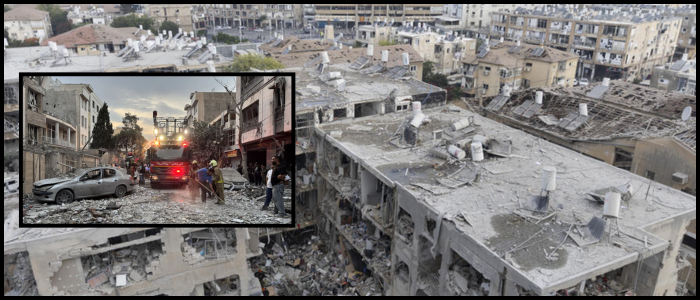The war has also laid bare how deeply Israeli intelligence has infiltrated Iranian security. Precise strikes included key commanders and scientists. Now, Khamenei's focus is likely on rooting out and eliminating suspected disloyalists, but there is no telling if a group of people can be trusted to do this work. In the meantime, rebuilding the Revolutionary Guard will be difficult, despite its broad ranks.
Appeared at a recent pro-government rally. Gen. Esmail Qaani, who leads the Quds Force, is one of the most senior leadership figures to have appeared in public. Foreign Minister Abbas Araghchi also came while the war was taking place for members of the public to hear from, including on a potential ceasefire having to make a statement in the absence of guys that should be delivering it.
Discussion about Nuclear and Domestic Pressures
The war has revived the debate over whether Iran should seek nuclear weapons. Iran has always insisted that its nuclear program is peaceful, but its enrichment of uranium to 60 per cent brings it close to weapons-grade material. Some now think that Khamenei may be having second thoughts about his old resistance to making a bomb. But any such step would necessitate clandestinely rebuilding the infrastructure that has been dismantled to avoid Israel or the United States once again attacking.
Or Khamenei may decide to return to the negotiating table with the United States in the hope of getting sanctions relief. A U.S. envoy has said there are already contacts, and that there is reason to hope for a long-term peace deal.
At home, Iran is still in dire economic straits. International sanctions, government mismanagement and sheer corruption continue to wreak widespread misery. Power is projected to be more blacked out during the summer. The currency exchange, stock market and Tehran's economy, meanwhile, were put on hold during the war, but the rial, which was once 32,000 to the dollar in 2015, is still perilously weak — roughly around 1 million to the dollar today.
Such mass anger may have struck a more vulnerable Iran: The economic crisis has ignited unrest before, including an uprising that saw fatal protests in 2019 and in 2022 after the death in police custody of Mahsa Amini. More than 500 were killed in the latter protests and more than 22,000 were arrested. Activists worry that the post-war era could see even more severe crackdowns, particularly on women's rights.
Leadership change and future direction
Although Israel´s goal was his death, Khamenei escaped. Yet succession hovers as a huge question. Under Iran's structure, a panel of clerics will pick the next Supreme Leader. Among the potential successors are Hujjat al-Islam Mojtaba Khatami, the son of a prominent cleric, and a grandson of Ayatollah Ruhollah Khomeini, who led the revolution that founded the Islamic Republic. Some are hard-liners; some are moderates.
But war could hasten a realignment of power dynamics, making military leaders more influential than at any time in a generation. Analysts say the nation could transition from clerical to military rule. If so, Iran's next era of governance could be dominated like never before by military and Revolutionary Guard commanders.
As the Nobel Peace Prize laureate Narges Mohammadi recently wrote, Iran's regime remains in violation of basic rights. But she still hoped for peace, for she thought true democracy could never be attained from war.
World

Iran's Future in Doubt After War With Israel

In the wake of a 12-day war with Israel, the future of Iran seems fraught and uncertain. The clash dealt substantial harm to Iran's military and its nuclear infrastructure. Israeli missile strikes decimated elements of the Revolutionary Guard and greatly reduced Iran's supply of ballistic missiles. Nuclear sites were also pounded by bunker-buster bombs but the extent of destruction was unclear. The supreme leader, Ayatollah Ali Khamenei, 86, remained mostly out of public sight during the conflict.















